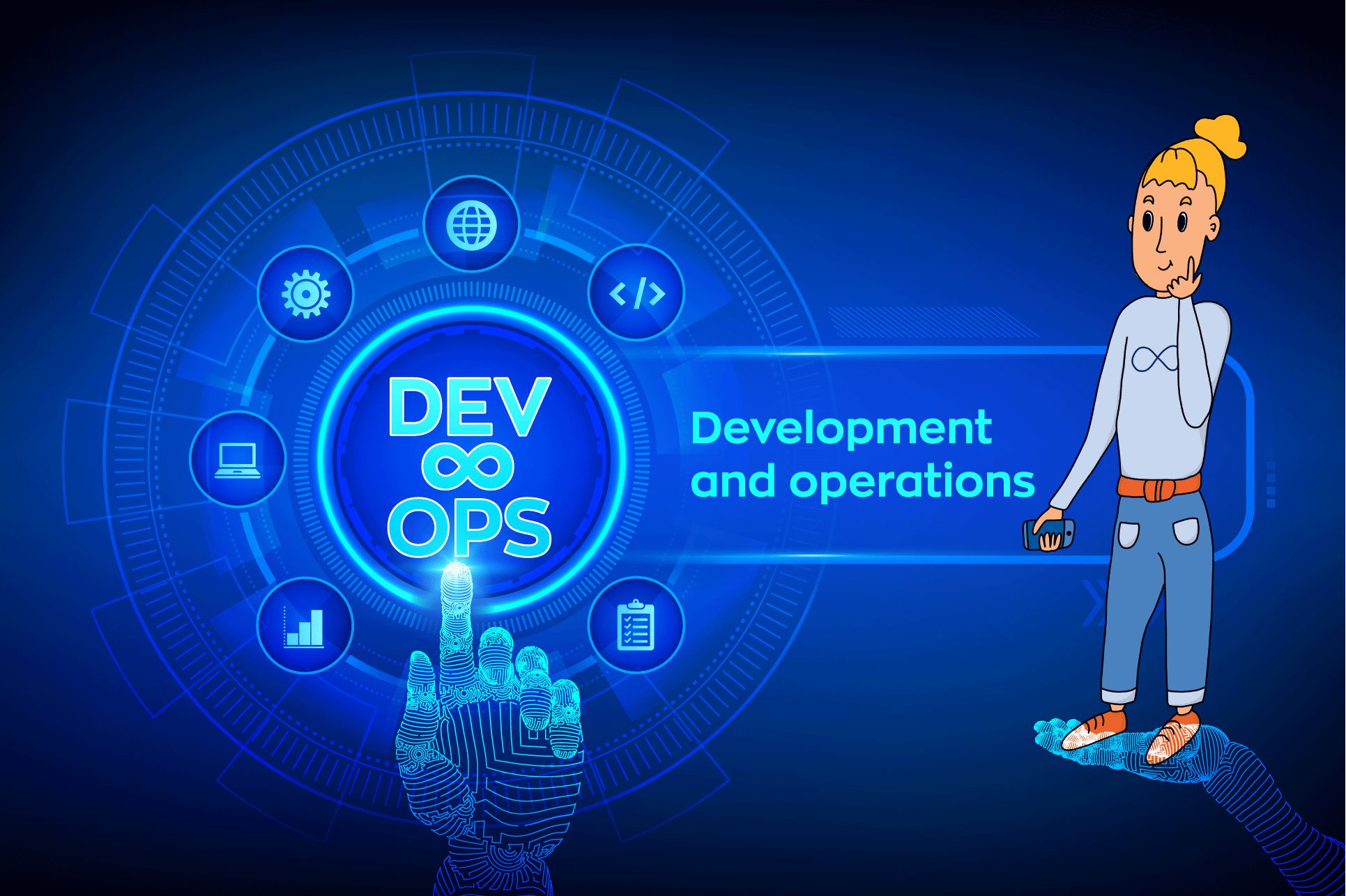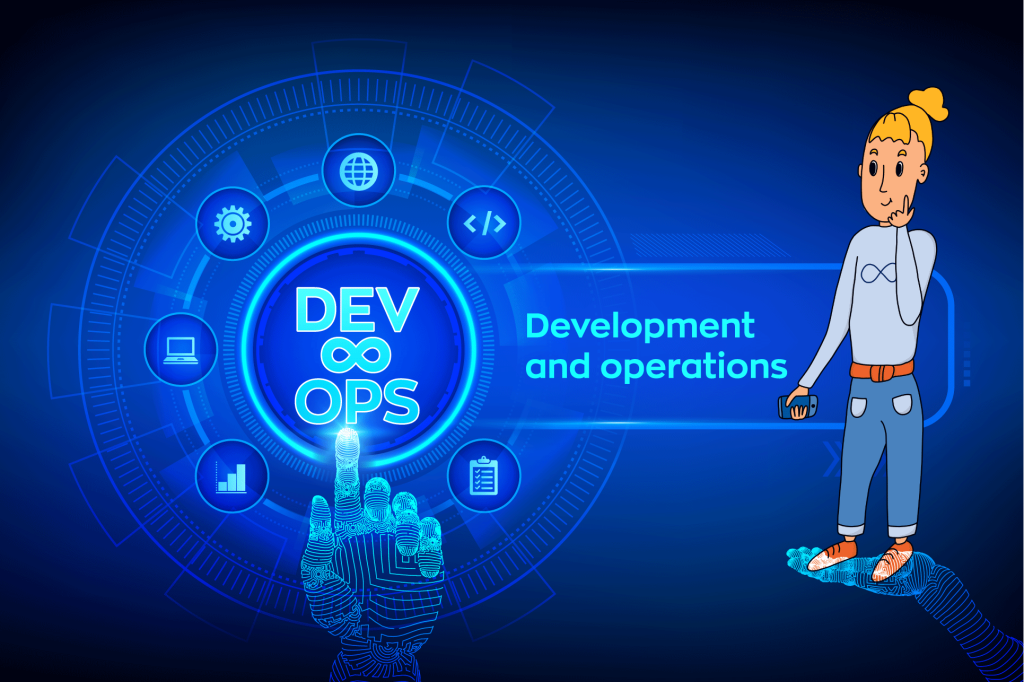In today’s fast-paced tech industry, businesses are constantly striving to stay ahead of the competition by delivering high-quality products and services at a rapid pace. This has led to the rise of DevOps – a software development methodology that focuses on collaboration, automation, and integration between development and operations teams. DevOps has revolutionized the way software is developed and delivered, enabling organizations to achieve faster delivery times, increased efficiency, and improved quality.
This article will delve into the world of DevOps, exploring its history, key principles, benefits, best practices, and future trends. Whether you’re new to DevOps or looking to enhance your understanding, this comprehensive guide will provide you with all the information you need to know about this game-changing methodology.
What is DevOps?
DevOps is a portmanteau of “development” and “operations.” It is a software development methodology that emphasizes collaboration, communication, and integration between software developers (Dev) and IT operations professionals (Ops). In traditional software development processes, there is a wall between the development and operations teams, leading to delays, miscommunication, and ultimately, poor product quality. DevOps breaks down this silo, bringing together developers and operations personnel to work towards a common goal – delivering high-quality software quickly and efficiently.

It is a methodology in software development that prioritizes teamwork, communication, and integration between software developers (Dev) and IT operations professionals (Ops)
In simpler terms, DevOps is a culture, a mindset, and a set of practices that prioritize collaboration, automation, and continuous improvement. It involves streamlining the software development lifecycle by integrating development, testing, deployment, and monitoring processes, thereby reducing the time and effort required to deliver applications.
The Origins of DevOps
The term “DevOps” was first coined by Patrick Debois in 2009 during a conference in Belgium, where he gave a talk on agile infrastructure. However, the concept of DevOps can be traced back to the early 2000s when companies started realizing the need for a more efficient and collaborative approach to software development. The rise of agile methodologies, continuous integration, and the push towards faster delivery times also played a significant role in the evolution of DevOps.
The Key Principles of DevOps
The principles of DevOps are rooted in the Agile Manifesto, which emphasizes people over processes and tools, working software over comprehensive documentation, customer collaboration over contract negotiation, and responding to change over following a plan. DevOps takes these principles to the next level by promoting collaboration and communication across all teams involved in the software development process. Some of the key principles of DevOps include:
- Collaboration: Collaboration is at the heart of DevOps. It involves breaking down silos and fostering seamless communication between development, operations, and other teams involved in the software development process.
- Automation: Automation is a crucial aspect of DevOps that enables organizations to achieve faster delivery times, improved efficiency, and reduced errors. By automating repetitive tasks such as testing, deployment, and monitoring, DevOps teams can focus on more critical aspects of software development.
- Continuous Integration and Delivery (CI/CD): CI/CD is a set of practices that involve merging code changes into a central repository frequently and automating the build, test, and deployment processes. This enables teams to release high-quality code at a rapid pace.
- Infrastructure as Code (IaC): IaC is a practice of managing infrastructure using code rather than manual processes. With IaC, developers can use tools like Puppet, Chef, and Ansible to automate the provisioning, configuration, and management of IT resources, thereby minimizing human error and increasing consistency.
- Monitoring and Feedback: Continuous monitoring and feedback are essential in DevOps to identify and resolve issues quickly, gather insights, and continuously improve the entire software development process.
The Benefits of DevOps
The adoption of DevOps has numerous benefits for both organizations and individuals. Below are some of the key benefits of implementing DevOps practices:

Implementing DevOps brings various advantages to both organizations and individuals
Improved Collaboration and Communication
DevOps breaks down the barriers between different teams, promoting a culture of collaboration and communication. This leads to better understanding, enhanced teamwork, and increased efficiency.
Faster Time to Market
By automating manual and time-consuming processes, DevOps enables organizations to deliver high-quality software at a rapid pace. This helps businesses stay ahead of the competition and meet customer demands more efficiently.
Higher Quality Products
With the integration of continuous testing and monitoring in the software development lifecycle, DevOps facilitates the early detection and resolution of bugs, vulnerabilities, and other issues. This results in higher quality products that meet the needs and expectations of end-users.
Increased Efficiency and Productivity
Automation is a cornerstone of DevOps, which helps reduce the time and effort required to perform repetitive and tedious tasks. This allows teams to focus on more critical aspects of software development, resulting in increased productivity and efficiency.
Better Customer Experience
With faster delivery times, improved quality, and more frequent releases, DevOps enables organizations to provide a better experience to their customers. This can lead to higher customer satisfaction, retention, and loyalty.
Best Practices for Implementing DevOps
Implementing DevOps is not just about adopting new tools and technologies; it requires a significant cultural shift within an organization. Here are some best practices for successfully implementing DevOps:
Establish Clear Goals and Objectives
Before embarking on a DevOps journey, it is essential to establish clear goals and objectives. This could include improving delivery times, increasing collaboration between teams, or enhancing product quality. Having a clear vision will help guide the implementation process and ensure that all efforts are aligned towards a common goal.
Encourage Collaboration and Communication
One of the fundamental principles of DevOps is collaboration and communication. Organizations should foster an environment that encourages teams to work together, share ideas, and communicate effectively. This can be achieved through regular meetings, cross-functional training, and the use of collaboration tools such as Slack, Jira, and Trello.
Automate Everything You Can
Automation is a crucial aspect of DevOps, enabling organizations to achieve faster delivery times, improved efficiency, and better quality. Organizations should aim to automate all possible tasks, including testing, deployment, monitoring, and infrastructure management. This will free up time for teams to focus on more critical areas of software development.
Implement Continuous Integration and Delivery
CI/CD is a core practice of DevOps and involves automating the build, test, and deployment processes. By implementing CI/CD, organizations can achieve faster release cycles, higher quality products, and increased efficiency.
Invest in Training and Development
DevOps requires a change in mindset and the adoption of new tools and technologies. It is essential to provide adequate training and development opportunities for teams to ensure they have the skills and knowledge to implement DevOps successfully.
Challenges and Solutions in Adopting DevOps
While there are numerous benefits to adopting DevOps, it is not without its challenges. Here are some of the common challenges organizations face when implementing DevOps and how to address them:

Although there are many advantages to embracing DevOps, it also comes with its own set of challenges
Resistance to Change
Resistance to change is a significant challenge when it comes to implementing DevOps. Teams may be hesitant to adopt new processes, tools, and technologies, leading to a lack of collaboration and communication. To overcome this challenge, organizations should involve teams in the decision-making process, provide adequate training and support, and highlight the benefits of DevOps.
Siloed Culture
The traditional siloed culture found in many organizations can hinder the successful implementation of DevOps. To break down these barriers, companies should focus on promoting a culture of collaboration, communication, and teamwork.
Lack of Skills and Knowledge
DevOps requires teams to have an understanding of various programming languages, tools, and technologies. When teams lack the necessary skills and knowledge, it can hinder the adoption of DevOps. Organizations should invest in training and development programs to upskill their teams and ensure they have the competencies required for DevOps.
Inadequate Tooling and Infrastructure
Having the right tools and infrastructure in place is crucial for implementing DevOps successfully. Without the necessary tools, automating processes, and achieving continuous integration and delivery becomes challenging. It is essential to invest in the right tools and infrastructure to support the implementation of DevOps.
Future Trends of DevOps
The world of DevOps is constantly evolving, and organizations must keep up with the latest trends to remain competitive. Here are some future trends that we can expect to see in DevOps:
Artificial Intelligence (AI) and Machine Learning (ML)
AI and ML are revolutionizing the way software is developed and delivered. They can be used to automate processes, identify patterns, and make data-driven decisions, thereby enhancing efficiency and productivity.
Serverless Architecture
Serverless architecture allows organizations to run applications without the need to manage servers or infrastructure. This will play a significant role in the future of DevOps as it enables teams to focus on developing and delivering code rather than managing infrastructure.
GitOps
GitOps is an emerging trend in DevOps that involves managing infrastructure through Git version control. With GitOps, developers can use familiar tools and workflows to manage infrastructure configurations, enabling faster delivery times and increased efficiency.
Containerization
Containers have gained popularity in recent years due to their ability to provide a lightweight and consistent environment for applications to run. Containerization will continue to play a crucial role in DevOps as it promotes consistency, portability, and automation.
DevOps Case Studies
Numerous organizations have successfully implemented DevOps and reaped the benefits of this approach. Below are two case studies that showcase the impact of DevOps on organizations:
Netflix
Netflix is a leading streaming service with over 200 million subscribers worldwide, making it one of the largest media companies in the world. The company has been a pioneer in DevOps, adopting a “you build it, you run it” culture where developers are responsible for all aspects of software development, including testing, deployment, and monitoring.
With DevOps, Netflix has been able to achieve faster delivery times, high availability, and improved quality. By automating processes and continuously monitoring their infrastructure, Netflix can quickly identify and resolve issues, resulting in minimal downtime for their services.
Capital One
Capital One is a financial institution that offers credit cards, loans, and banking services. The company has embraced DevOps, bringing together developers and operations teams to work towards a common goal – delivering innovative products and services at a rapid pace.
With DevOps, Capital One has reduced its development time from months to days, enabling them to release new features and products more frequently. This has led to increased customer satisfaction and retention, further cementing the benefits of DevOps.
Conclusion
In conclusion, DevOps has revolutionized the way software is developed and delivered, enabling organizations to achieve faster delivery times, increased efficiency, and improved quality. By breaking down silos and fostering collaboration between development and operations teams, DevOps promotes a culture of continuous improvement and innovation.
This article has explored the history, key principles, benefits, best practices, and future trends of DevOps. Whether you’re new to DevOps or looking to enhance your understanding, this comprehensive guide provides you with all the information you need to know about this game-changing methodology. So, if you’re ready to take your software development process to the next level, it’s time to embrace DevOps.


